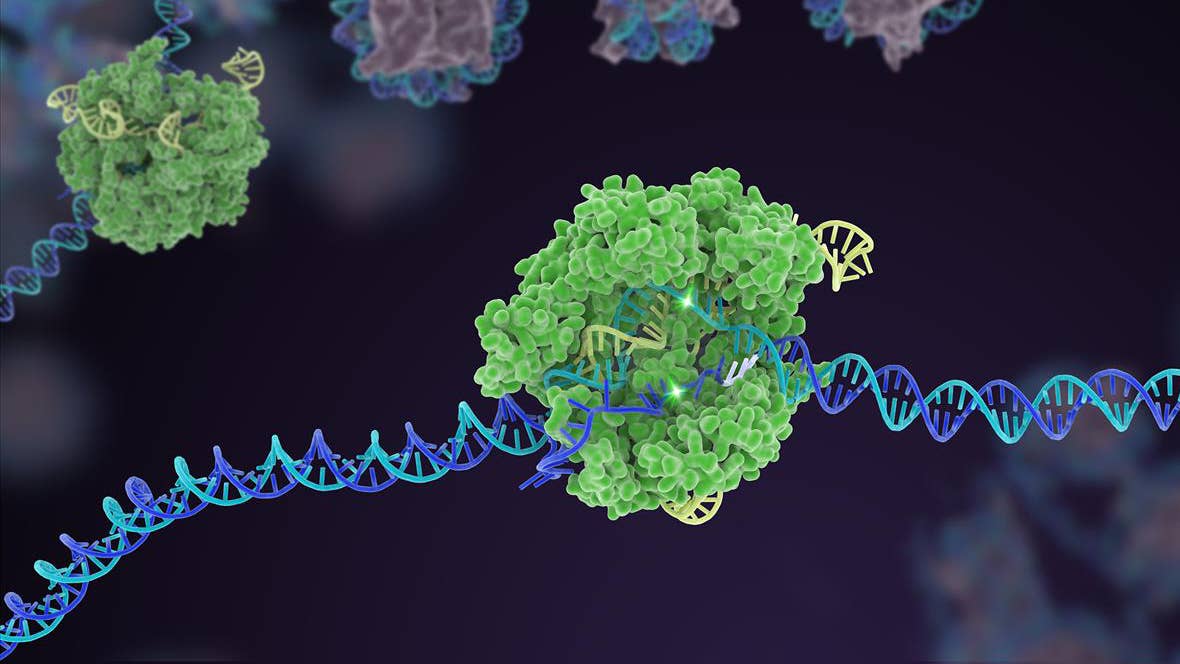Gene-Edited Animal Organ Transplants Could Help End the Organ Donor Crisis

Share
Thousands of people a year die while waiting for an organ transplant. Early experiments in xenotransplantation are raising hopes this could soon be a thing of the past.
In the US, 100,000 people are currently on the organ transplant waiting list, and 17 of them die every day before receiving an organ. The persistent shortage of organ donors has long led doctors to flirt with the idea of xenotransplantation, a procedure where tissue or an organ from an animal is transplanted into a human.
Early experiments were largely unsuccessful and ethically questionable, though, and the idea remained firmly on the fringes of the medical world. That’s largely due to the high risk of rejection. This is a problem for human transplants too, but it’s much more risky when using organs from other species.
But the advent of increasingly powerful and precise genetic engineering technologies such as CRISPR have ushered the idea from the shadows. The ability to make edits to the donor animals’ DNA to prevent the production of biomolecules known to induce immune responses in humans has raised hopes the approach may be viable after all.
In recent years, a handful of pioneering experiments in humans have demonstrated that genetically engineered pig organs can at least temporarily function smoothly in the human body. Medical complications, organ rejections, and patient deaths have meant none of these procedures have provided a long-term solution, but the results so far have been promising.
“At Massachusetts General Hospital alone, there are over 1,400 patients on the waiting list for a kidney transplant,” Leonardo Riella, who led the surgical team at Mass General that transplanted a pig kidney into a patient, said in a press release earlier this year.
“Some of these patients will unfortunately die or get too sick to be transplanted due to the long waiting time on dialysis. I am firmly convinced that xenotransplantation represents a promising solution to the organ shortage crisis.”
In 2021, in the first human experiment involving a genetically engineered pig organ, doctors transplanted a kidney into a patient who was already brain dead. The team knocked out a gene for a molecule called alpha-gal—which causes organ rejection—in the donor pig. The surgery appeared to be a success: The kidney produced urine and showed no signs of rejection, but the patient was only kept alive for 54 hours.
The following year, a patient with terminal heart failure received a genetically modified pig heart and initially seemed to do well, but then passed away 60 days later. While it’s not entirely clear why he died, the doctors found that pre-screening failed to flag a pathogen called porcine cytomegalovirus that was found in his heart afterwards, which could have contributed. He’d also been given an antibody treatment that had reacted with the heart.
Then earlier this year, two kidney disease patients who were ineligible for normal transplants received gene-edited pig kidneys from donor pigs bred by biotech firm eGenesis. Using CRISPR, the company made 69 edits that removed some pig genes, added some human ones, and reduced the risk of latent virus in the organ reactivating and harming the patient.
The procedures appeared to go well. Doctors even discharged the first patient after determining the kidney was functioning well, and he no longer needed dialysis. Two months later he passed away, but he had other underlying health issues, and the hospital said there was no indication his death was the result of the transplant.
Be Part of the Future
Sign up to receive top stories about groundbreaking technologies and visionary thinkers from SingularityHub.


The second patient had to have the kidney removed after 47 days due to “unique challenges” stemming from the fact she had also had a mechanical heart pump implanted just before the transplantation. There were no signs of rejection, but the kidney started losing function because her heart was not able to pump blood with enough pressure, the researchers said.
The most recent experiment was announced in May, when Chinese researchers said they had transplanted a liver from a genetically modified pig into a 71-year-old man with liver cancer. While details of the procedure are limited, the team claimed the man was “doing very well” more than two weeks after surgery.
While most of these experiments have been short-lived, the fact that only two cases saw the transplanted organ fail—one of which was due to external complications—is a promising sign. For ethical reasons, doctors have only been able to experiment with patients whose chances of survival were already slim.
But it does mean that we have little idea whether xenotransplantation could be a viable long-term solution for patients. There is also some concern that implanting organs from other animals into humans could make it easier for pathogens to jump between species, potentially creating the risk of new pandemics.
Other researchers are investigating whether, instead of transplanting pig organs into humans, we could grow human organs in pigs. Last September, researchers announced they’d transplanted human stem cells into pig embryos where they then grew into rudimentary kidneys.
This approach is a long way from human trials though, so for the time being, xenotransplantation seems like a more promising way to bring down transplant wait times. While it’s still early days, the promising early results suggest we may not be far from a future where replacement organs can be grown to order.
Image Credit: Massachusetts General Hospital
Related Articles

Souped-Up CRISPR Gene Editor Replicates and Spreads Like a Virus

Your Genes Determine How Long You’ll Live Far More Than Previously Thought

Google DeepMind AI Decodes the Genome a Million ‘Letters’ at a Time
What we’re reading
